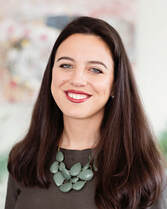|
As the Principal Psychologist of the Antenatal & Postnatal Psychology Network, part of my role involves communication. Communication to the public about specific help that is available for issues surrounding fertility, pregnancy, perinatal loss, the postnatal period, and the early parenting years. Communication about the importance of help-seeking at these vulnerable times in life. And communication that involves reassuring people that they will be met with acceptance, non-judgement, a deep caring for the fragility of the human psyche, and a belief in the capacity for human growth. In my communications role, I made the assumption that inclusivity was a given. That without judgement, we see any woman, any couple, and any formation of a family. That people are people with similarities and differences, with every person being a unique compilation of their past experiences, temperaments, likes, dislikes, preferences, fears, aspirations, disappointments, and life challenges. I used to believe that a person's sexuality was just one of the things that makes them uniquely who they are, in combination with their past experiences, temperaments, likes, dislikes, preferences, fears, aspirations, disappointments, and life challenges. With the therapeutic lens fixed squarely on the individual person in the therapy room (and the presenting issues at hand), I never saw the need to articulate that "we see same sex attracted clients", or "gender diverse clients". Indeed, I felt that stipulating this on our website, was in itself making a sexuality distinction where none was required - a potential discrimination in a back-to-front kind of way. In a similar way, I didn't see the need to state that we see people from all cultures, from all religions. Of course we do! It's our job to understand the unique aspects of the individual, who that person is, the formation of their identity, how they think, what they feel, where they've come from, what has influenced their past and current struggles, and what they want in life. My rationale was that we see women, men, and couples, for issues surrounding donor conception, for support through IVF, single women, women with fertility issues, women experiencing reproductive loss, women struggling in pregnancy or the postnatal period, and parents dealing with parenting difficulties. So why did it matter if the woman, or the couple was same sex attracted, or gender diverse? Then we invited Jacqui Tomlinson (from Rainbow Families) to talk at our Mental Health Professionals Network meeting about same sex attracted couples, IVF and loss. It was here that I appreciated the extent of the anxiety that same sex attracted/gender diverse people can feel when seeking a health professional (especially around creating a family in a heteronormative culture). When Jacqui spoke about the fear that LGBTQIA+ people can experience around not being accepted, or being treated with disdain (even by health professionals), I recognised that by virtue of their minority status, and the wounds they may carry from backgrounds of discrimination or lack of acceptance, inclusivity needed to be stated. LGBTQIA+ people need to know that we see you, we accept you, we respect you, and we welcome you, with your human frailties, your identity wounds and your capacities for resilience. Like all people from all backgrounds your identity is central to your experiences of conception, pregnancy, perinatal loss, and parenting. Whether you are doing it solo or in a gender diverse relationship, whether you are using a known or unknown donor, or surrogate, we are here to understand who you are and what you are experiencing, without judgement. We get the unique difficulties faced by LGBTQIA+ people including the prejudices of some people regarding the creation of rainbow families. We get that the sad irony of societal homophobia is that some queer people unconsciously internalise heterosexist ideas, believing that they do not have the right to be parents, that they won't be good parents or that they have to be 'perfect' parents. When there are difficulties in the childbearing years (which there are for many of us), these deep seated schemas can be sitting just under the surface of one's struggles. We get that same sex/gender diverse couples can experience some of these difficulties:
So now, as the communications person for the Antenatal & Postnatal Psychology Network, not only do we overtly state this inclusivity on our website, we ensure that our ongoing training and professional development includes LGBTQIA+ specific topics, and that LGBTQIA+ populations are represented in the topics we cover.
Written by Dr Renée Miller
Principal Clinical Psychologist Antenatal & Postnatal Psychology Network |
AuthorPosted by Dr Renée Miller Topics
All
|
|
We acknowledge and pay respects to the Elders and Traditional Owners of the land on which our psychologists practise.



 RSS Feed
RSS Feed

